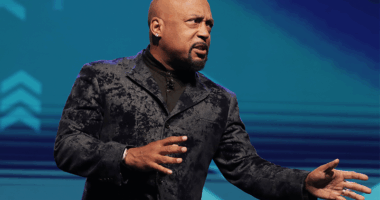RESET: Ensuring Fidelity of Implementation and Outcomes
Session notes from "RESET: Ensuring Fidelity of Implementation and Outcomes," presented by Chaunte Garrett, at UNITED: The National Conference on School Leadership.

What was the speakers’ main message?
Success doesn’t come without struggle, challenge, and even loss, so we have to reset. Whether it is after the summer or just after the weekend, we have an opportunity to reset. Too often decisions are based on emotion or our biased perspective rather than being data-informed decisions. The RESET Framework (Reflect, Evaluate, Strategize, Execute, and Track) can provide a guide to ensure fidelity of implementation and outcomes.
What were the speaker’s best quotes?
“The principles of transformation are not things we do, they are systems we operate well.”
“The strategy is only as good as its alignment to the target it supports.”
What were the top ideas from the session?
Principles of School Transformation:
- Establish a Clear Vision for Learning and Results
- Use Data to Inform Instructional Decisions
- Build and Develop a High-Capacity Team
- Create a Culture of High Expectations and Support
- Prioritize Rapid, Visible Wins to Build Momentum
- Engage Families and the Community as Partners
- Lead with Urgency and Sustained Focus
Garrett provided a rationale for why these practices matter, key actions for school leaders, and sources to guide action/implementation.
Schools looking to engage in transformation activities must rely on data. Garrett provided a variety of data sets (complete with discussion questions starting on p. 3) to guide leaders as their teams investigate their data. The data sets include:
- Data Set 1: Vision and Goal Alignment—The “Greatest Idea, No Action” Syndrome
- Data Set 2: Data-Driven Instructional Decisions—The “The Data Rich, Information Poor” Paradox
- Data Set 3: High-Capacity Teams—The “Burning Out, Not Building Up” Challenge
- Data Set 4: Culture of High Expectations and Support—The “Compliance Over Connection” Climate
Using the indicators, goals, results, and outcomes in each of the data sets allows school leaders to make data-informed decisions that have real, deep impact.
RESET Framework—The 5 Steps to Data-Driven Excellence
- REFLECT—gain clarity on your current position and core challenges
- EVALUATE—analyze data trends and identify key improvement areas
- STRATEGIZE—develop targeted, achievable action plans
- EXECUTE—implement changes with confidence and precision
- TRACK—monitor progress and optimize for sustained success
The RESET Framework will empower your school to reset results. It changes the perspective to transform complex data into clear action plans that deliver measurable student success, streamline decisions with a proven framework that maximizes your resources and impact, and close performance gaps by identifying and addressing hidden opportunities early.
What is one strategy that will help you with instructional leadership?
RESET is a comprehensive system that enables educational leaders to harness the power of their data and transform it into improved results. RESET Fidelity Action Planning Tool is a guide to allow leaders quickly apply the RESET Framework to a current implementation challenge. It will evolve into your initial action plan, providing a clear path forward and highlighting areas where deeper support can accelerate your success. This tool includes:
- Identifying the problem of practice;
- Reflecting;
- Evaluating (current and desired outcomes/data we have/data we need);
- Strategizing (research, resources, stakeholders, and strategies);
- Execute (implementation plans, modeling, practice, and expected pivots); and
- Track (progress monitoring, transparent, observable, and actionable).
What resources will you check out?
I can’t wait to tell my teachers about this idea:
One idea that Garrett asked teachers to do was include a win in their lesson plan. This idea is a quick, simple way to keep the focus on kids and learning while emphasizing the small wins that happen every day, wins that create the momentum to improve culture, teaching, and learning.
Todd Brist is principal of Watertown Middle School in Watertown, South Dakota.
Read more session notes in the NAESP Conference Blog.




